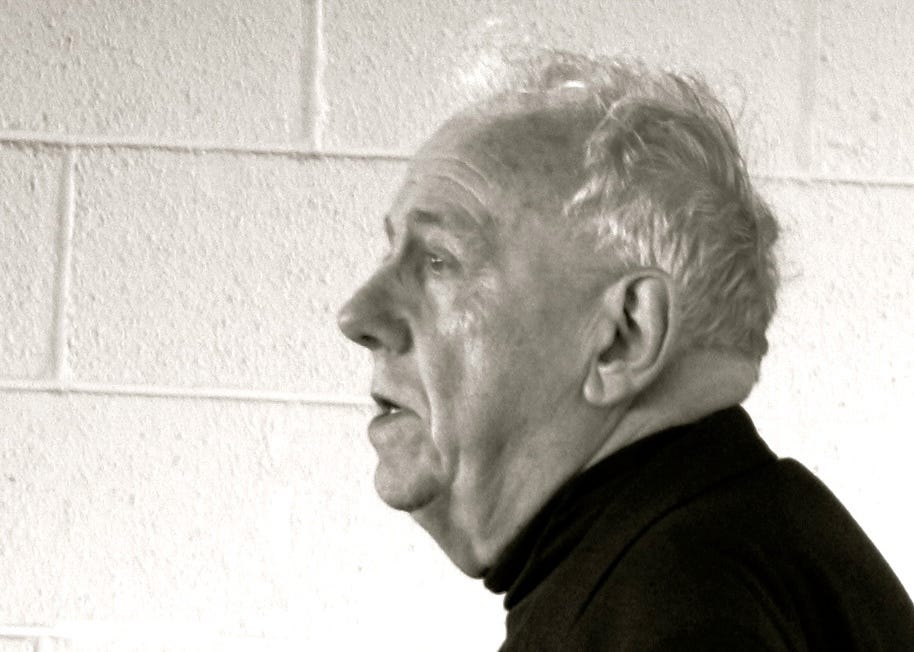Shortly after the end of the Second World War, Alasdair MacIntyre (1929-2025), who later became one of the most influential philosophers of our time, concluded that modern liberalism was flawed. He had just turned 17. He was ambitious, provocative and always on the move: Glasgow, London, Birmingham, Oxford – the United States of America. Meanwhile, he became the godfather of the revival of virtue ethics and post-liberal philosophy.
MacIntyre had something to say. As a young man, he had thought about becoming a Presbyterian minister. Instead, he became a philosopher and a Catholic. He never got a PhD, saying, “I won’t go so far as to say that you have a deformed mind when you have a PhD, but you will have to work extra hard to remain educated.”
MacIntyre worked hard, writing more than 20 books and over 200 academic articles. They awarded him with ten honorary doctorates. But his passion was in teaching. He ran his classes like a Marine boot camp. Keeping his students off balance, sharp. Lesson: Discomfort is the first sign of growth.
He despised lazy questions—the ones you could have answered yourself by visiting the library or checking Wikipedia. He demanded the best of his students and went out of his way to help them if they dared to ask. All agree that he left his students in a much better shape than they were in when they began.
The Philosopher’s Grenade
In 1981, After Virtue detonated like a philosophical grenade—waking up a complacent academy. The book was a sharp critique of our times. MacIntyre demonstrated how our morality has been reduced to nothing more than our irrational desires, separated from any good that transcends and questions these desires. What we need, he said, is a new Saint Benedict for our times. We need a new coherent economic, political, and ethical model that opposes the logic we live by. A vision that acknowledges that we are mutually dependent on one another to secure human flourishing.
MacIntyre and the Dominicans
Soon, invitations to speak came from all over the world, including the University of Oxford. There he met up with the Dominican friar Herbert McCabe OP. They had first met when Alasdair was an undergraduate in Birmingham. But only now did McCabe’s critique of liberalism make sense. They discussed, drank a pint, and then some more.
Something clicked. This was the culture where Alasdair belonged. The history of Catholic thought was also his story. At 55, he finally found his intellectual home. He became a Catholic.
MacIntyre also found his home in Aristotelian-Thomistic philosophy. Not because Thomas Aquinas got everything right, but because Thomas was intellectually honest. Aquinas would not conclude any argument until he had found the best arguments to support it and the strongest objections against it. This approach to philosophy inspired MacIntyre. And it should inspire us to.
Storytelling Animals
The rediscovery of Aquinas also made MacIntyre appreciate the role of history in philosophy. There is no text without a context. The wisdom of wise women and men before us helps to break down the hubris of our present-day craziness. It makes us see how we are part of a larger story. Storytelling makes us human. Any ethical question is embedded in a story of how we got to this point. And so MacIntyre concluded that the answer to ‘what should I do’ can only be answered when I know of what story I find myself part of.
Throughout his life, MacIntyre never regarded his religious convictions as a threat to his philosophy. Instead, he followed the philosophy of Saint Edith Stein, believing that philosophy is deeply sustained by reflecting deeply on the content and experience of life itself. Religion, whether we believe or not, is part of that experience. Such deep thinking perforates disciplinary distinctions. It also helps us to find the ultimate source of value. To find something worth living for. And you do not need a PhD for that—just the humility to learn.
Take Action
MacIntyre believed that virtue is not granted by degrees or diplomas—it is forged in the daily grind. So here’s your assignment: choose one virtue you have been skirting—honesty, courage, generosity—and commit to it for the next three days. Write down one concrete action each morning, execute it before noon, then jot down what shifted by sunset. That’s how stories are written—not in tomes, but in tiny, relentless acts.
Picture: crop Wikicommons





I am sorry to say I had never heard of Macintyre before he passed, but I have been finding the tributes to him fascinating. Thanks as always for the suggestions at the end as well!